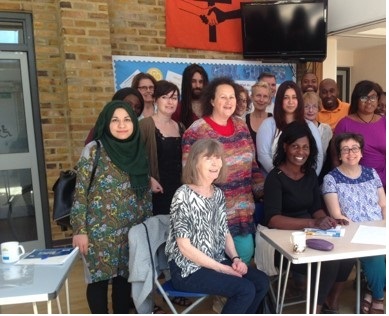
After two years of weekly meetings, copious amounts of sullied tissues, hours of talking, silence and contemplation all in the same tiny room overlooking the Thames, I couldn’t quite sense what I was taking away. The rewards of the experience didn’t await me neatly wrapped with a tag addressed to a newly well version of myself. The real gift I received through undertaking counselling was slow in the making. The ability to realise what had been given and received in the work we had undertaken together was similarly slow in revealing itself.
I began therapy, rather unwillingly, halfway through my English literature degree at King’s College London, in the midst of an all-consuming depression. I had entered university confident, clever and keen, eager to learn more about the literature that I loved. Yet I instantly felt that I didn’t fit in. Rather than finding my feet and forging new friendships in an exciting city I was losing sleep, losing my confidence and losing my sense of self.
I was unable to speak to my peers, go to the pub, or carry out any basic social interaction without an intense feeling of fear and anxiety. The effect on my personal life was huge. I retreated and hid between library shelves, buried myself in books and locked myself in my bedroom. My debut poetry book had just been published, but I was declining gigs, terrified that I could no longer perform with my usual exuberance.
When a kind and concerned tutor referred me to counselling, I was initially sceptical and reluctant. My fear of speaking to people had become so all-consuming that the thought of being “forced” to talk in a confined space for 50 minutes a week with another human being was beyond contemplation.
The first sessions lived up to my expectations. I was guarded, mute and disengaged from the process out of a fear of what it might reveal. But slowly, like the cranes on the South Bank I watched from the window, I began to build a rapport with my counsellor and grew more willing to talk and engage openly with the process of counselling. The sessions gave me new ways of viewing my life, new coping mechanisms for enduring every socially awkward evening at the pub, but more importantly they gave me a new perspective on what gift-giving and receiving might look like.
Unable to cope with my life as it was and unable to see the way to solve the situation for myself, I had gone into therapy with the wish to just scream “Please fix me!” at the nearest trained therapist. But through the process of counselling I learned that the point of the exercise was not to be given all the answers, but to be offered a safe, contained space in which I could develop and grow, aided by my counsellor.
The benefits I took from the experience were not handed to me by an all-knowing, problem-solving professional while I sat passively receiving them. They were worked for through collaboration and effort, strain and failure. They were the product of a symbiotic relationship, united in the purpose of thinking (and feeling) through the problems I was facing. Counselling gave me my life back, a life I slowly began to want to live again. It also helped me to get my voice back, which I now use often and buoyantly, as I perform poems about feminism and my struggles with depression.
My counsellor had been right. Counselling didn’t “fix” all the problems in my life. There are still days when getting out of bed feels like an impossibility, when talking to strangers feels too scary. Through counselling I learned to accept that the process of thinking and feeling better about myself was a gradual one; one that didn’t have to provide all the answers at once; one not about being given a solution but slowly realising the internal gifts and qualities I already had but had lost within myself.
Realising just how much I had gained from therapy took a long time. I realise it every time I feel incapable of getting out of bed but do anyway. Every time I feel on the edge of things and yet somehow still finish my to-do list for the day. And every single time I stand up in front of a crowd and perform a poem.
The transformative and restorative effect of my time in therapy wasn’t in fact a gift given to me, but one I helped to give myself
